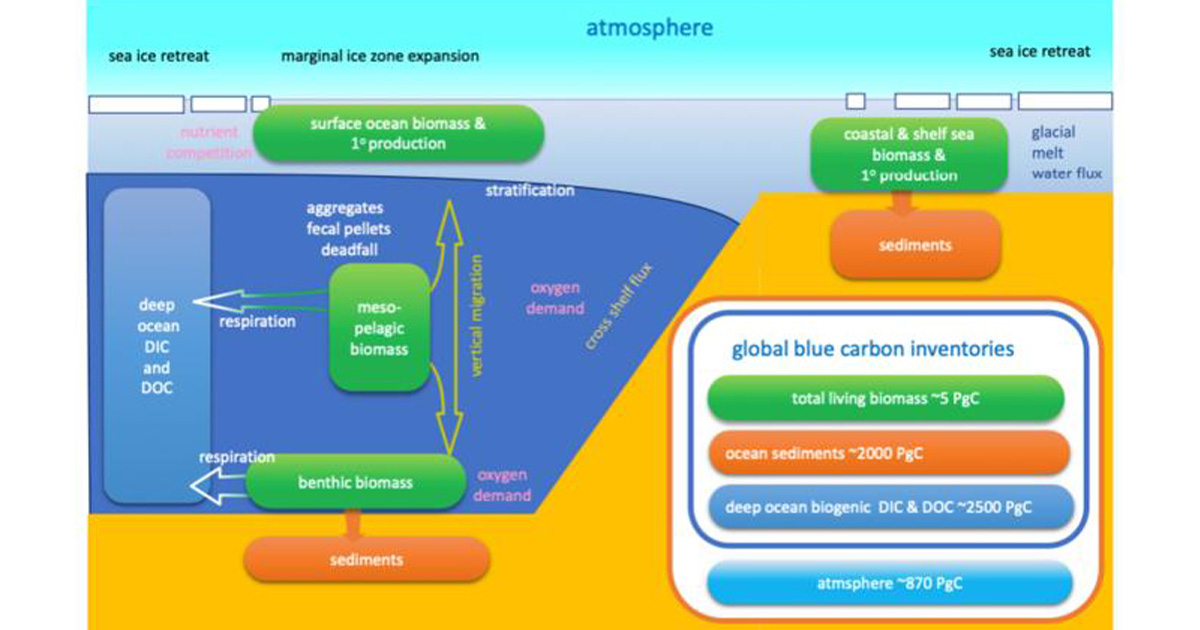SEA-Quester is investigating carbon cycling in novel marine polar ecosystems that are expected to emerge due to climate change. Melting sea-ice, changing currents, and a warmer ocean are already changing species distributions, behaviors, and metabolism.
How these will further change marine biodiversity and ecosystem functions and services, like carbon sequestration, in the polar seas is not well understood. However, this has potentially large consequences for meeting targets for biodiversity and climate change mitigation.
SEA-Quester will tackle the unknowns of “polar blue carbon” through a combination of field observations, remote sensing, and modelling. Field cruises to the fjords and shelf seas around Greenland and Svalbard, in addition to the Southern Ocean, will investigate the uptake and storage of carbon as it moves from coastal ecosystems (such as kelp forests) to the open ocean, where biological processes related to plankton, fish, and bottom-dwelling organisms play an important role in determining the ultimate fate of the carbon our oceans take out of the atmosphere.
These new insights are not only helpful for improved modeling of the global ocean and EOV (essential ocean variable) monitoring, but will also be showcased in new management tools, such as a biological sequestration amplification factor and maps of blue carbon sequestration potential. These new tools will help tackle the challenges and address tradeoffs in protecting and managing Arctic marine areas, while shedding light on the mitigation potential of natural carbon sequestration processes.
SEA-Quester runs from February 1, 2024, to January 31, 2028, and is a collaboration between the following partners: Technical University of Denmark, DTU-Aqua (Denmark, Lead), University of Bremen (Germany), Greenland Climate Research Centre, Greenland Institute of Natural Resources (GINR, Greenland), Alfred-Wegener Institute, Helmholtz Centre for Polar & Marine Research (Germany), Leibniz-Institute for Baltic Sea Research (IOW, Germany), Åbo Akademi University (Finland), Institute of Oceanology, Polish Academy of Sciences (IOPAN), GRID-Arendal (Norway), Hereon Helmholtz-Zentrum (Germany), Imperial College London, and Aarhus University (Denmark).
SEA-Quester received funding under Grant Agreement No: 101136480.



